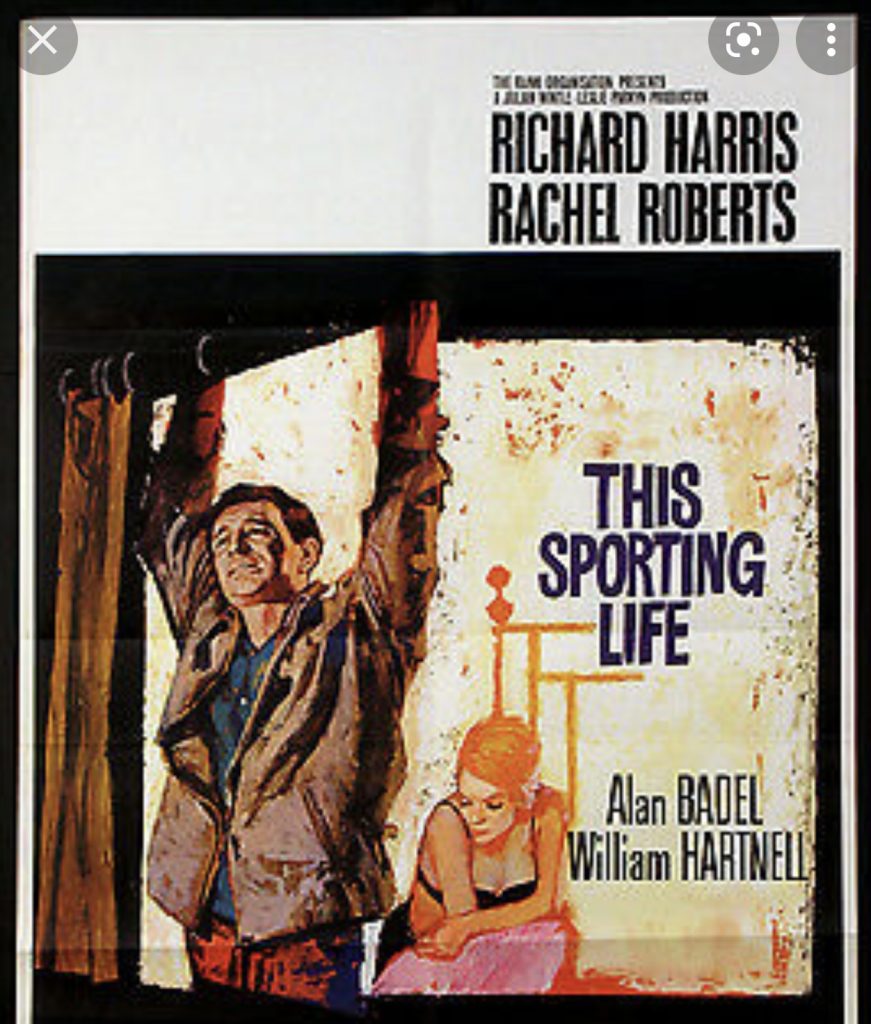I’ve spoken from time to time about my love for British kitchen-sink films. Actually only once or twice, the first time being 15 years ago. Raw, sometimes rowdy, grimly realistic black-and-white films…late ’50s to early ’60s…youngish working-class fellows plus Leslie Caron and Rita Tushingham…grappling with despair, too much alcohol, bum paychecks, sullen attitudes and a sense of entrapment or even panic.
There were only eight or nine of merit — Look Back in Anger (’59), Room at the Top (’59), Saturday Night and Sunday Morning (’60), A Taste of Honey (’61), A Kind of Loving (’62), The L-Shaped Room (’62), The Loneliness of the Long Distance Runner (’62), This Sporting Life (’63) and Billy Liar (’63).
The leading-light directors were Karel Reisz, Tony Richardson, Bryan Forbes, John Schlesinger, Jack Clayton. The principal actors were Albert Finney, Alan Bates, Tom Courtenay, Tushingham, Rachel Roberts, Richard Harris, Caron, Colin Blakely, Norman Rossington, etc.
I’m mentioning this because I have a confession: until last night I’d never actually watched Saturday Night and Sunday Morning…costarring the blazing, incandescent Finney and Roberts, directed by Reisz, produced by Richardson and written by Alan Sillitoe, based on his own 1958 novel.
The usual kitchen sink dynamic, of course…the 23 year-old Finney as Arthur, a cynical, blunt-spoken machinist (technically a teddy boy but not a rocker) doing a lot of drinking and partying while simultaneously having it off with a 30ish married woman (Roberts) and romancing a pretty 22 year old (Shirley Anne Field).
Finney is so fierce and nervy, which of course is an act that hides his despair and depression over eventually becoming just another factory-working bloke with kids and a wife and too many bills to pay…stuck for the rest of his life.
It just feels so lean and vaguely miserable and pared to the bone…there isn’t a line or a scene that doesn’t feel like a perfectly designed belt or bearing in a well-oiled engine, or a supporting character who doesn’t fit right in like a natural piece of a puzzle, although there isn’t a single aspect of Saturday Night and Sunday Morning that feels the least bit puzzling or vague or off the mark. No fat or fatuousness; no digressions. Most of it (but not all) is “lemme outta here,” and that’s the point.
To-die-for cinematography by the great Freddie Francis (Sons and Lovers, The Innocents, The Elephant Man, The French Lieutenant’s Woman).
I made this point a few years ago, but if someone were to remake Saturday Night and Sunday Morning as a 2023 tale of aimlessness and gathering desperation…a Zoomer or young Millennial character (man or woman) working at sone kind of underwhelming job, vaguely enraged, living with a boring roommate or an older brother or parents in suburban New Jersey, Maryland, New Mexico or northern Florida…I would watch it in a second.
Just leave out the superficial crap and just tell it plain and straight.
I’ve always thought the term “kitchen sink” had something to do with one of these films having depicted a scene in which one of the protagonists (Alan Bates in A Kind of Loving, say) coming home drunk late Saturday night and literally throwing up in the kitchen sink.
It may have come from a line Pauline Kael wrote about the genre, but I know I’ve had this image in my head for years. Or is the term “derived from an expressionist painting by John Bratby which contained an image of a kitchen sink”?, as it says on the Wiki page?

